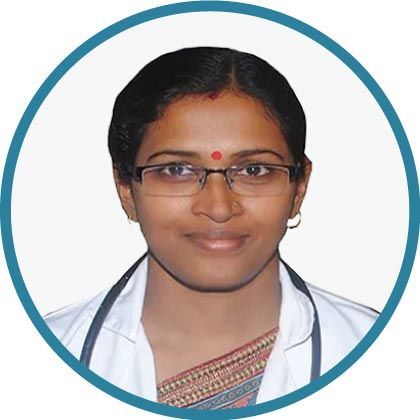Heart Disease FAQs and Common Questions
Get answers to frequently asked questions about heart disease. Understand symptoms, risk factors, prevention, and treatment options for a healthier heart.


Introduction
Heart disease is a term that covers various conditions affecting the heart and blood vessels. It’s natural to have questions, especially if you or a loved one has been diagnosed with it. This guide answers some of the most common questions about heart disease in simple, easy to understand language.
1. What is Heart Disease?
Heart disease refers to several conditions that affect the heart’s structure and function. The most common type is coronary artery disease (CAD), where plaque builds up in the arteries, reducing blood flow to the heart. Other types include:
- Heart failure – The heart can't pump blood effectively.
- Arrhythmia – Irregular heartbeats (too fast, too slow, or irregular).
- Heart valve problems – Valves don’t open or close properly.
2. What Are the Common Symptoms of Heart Disease?
Symptoms vary depending on the type of heart disease but may include:
- Chest pain or discomfort (angina)
- Shortness of breath
- Fatigue or weakness
- Dizziness or fainting
- Swelling in legs, ankles, or feet (edema)
- Irregular heartbeat (palpitations)
Note: Some people, especially women, may experience less common symptoms like nausea, jaw pain, or extreme tiredness.
Get Your Symptoms Assessed
3. What Causes Heart Disease?
Several factors contribute to heart disease, including:
- High blood pressure – Puts extra strain on the heart.
- High cholesterol – Leads to plaque buildup in arteries.
- Diabetes – Increases the risk of heart problems.
- Smoking – Damages blood vessels.
- Obesity & lack of exercise – Strains the heart.
- Family history – Genetics can play a role.
4. How is Heart Disease Diagnosed?
Doctors use different tests to diagnose heart disease, such as:
- Electrocardiogram (ECG/EKG) – Checks heart’s electrical activity.
- Echocardiogram – Uses sound waves to see heart function.
- Stress test – Monitors heart during exercise.
- Angiogram – X Ray of blood vessels to check blockages.
If you have risk factors or symptoms, consult a doctor for proper testing.
5. Can Heart Disease Be Prevented?
Yes! Many heart diseases can be prevented or managed with healthy habits:
- Eat a heart healthy diet – More fruits, vegetables, whole grains, and lean proteins.
- Exercise regularly – At least 30 minutes of moderate activity daily.
- Quit smoking – One of the best things for heart health.
- Control blood pressure & cholesterol – Regular checkups help.
- Maintain a healthy weight – Reduces strain on the heart.
- Manage stress – Yoga, meditation, or hobbies can help.
Consult Top Physician For More Health Benefits
6. What Treatments Are Available?
Treatment depends on the type and severity of heart disease:
- Medications – Blood thinners, statins, or blood pressure drugs.
- Lifestyle changes – Diet, exercise, and quitting smoking.
- Procedures – Angioplasty, stents, or bypass surgery for severe blockages.
- Pacemakers or defibrillators – For irregular heartbeats.
Your doctor will suggest the best option based on your condition.
7. When Should I See a Doctor?
Seek immediate medical help if you experience:
- Severe chest pain (especially with sweating or nausea).
- Sudden shortness of breath.
- Fainting or extreme dizziness.
- Irregular heartbeat with dizziness.
For routine checkups or concerns, consult a cardiologist.
8. Can Heart Disease Be Reversed?
While some damage may be permanent, lifestyle changes and medications can slow down or even reverse early stage heart disease. Sticking to a healthy routine is key!
9. How Can Apollo 24|7 Help?
If you have concerns about heart health, Apollo 24|7 offers:
- Expert cardiologist consultations (online or in person).
- Heart health tests (ECG, cholesterol, blood pressure checks).
- Personalized treatment plans.
You can easily book a consultation or schedule a test through the Apollo 24|7 app or website.
Final Thoughts
Heart disease is serious, but with the right knowledge and care, you can manage it effectively. Small lifestyle changes make a big difference. If you have any concerns, don’t hesitate to reach out to a doctor.
Stay heart healthy!
Consult Top Physician
Consult Top Physician

Dr Syed Mateen Pasha
General Physician
2 Years • MBBS
Bengaluru
PRESTIGE SHANTHINIKETAN - SOCIETY CLINIC, Bengaluru

Dr. Anand Ravi
General Physician
2 Years • MBBS
Bengaluru
PRESTIGE SHANTHINIKETAN - SOCIETY CLINIC, Bengaluru

Dr. Syed Ismail Ali
General Practitioner
7 Years • MBBS
Hyderabad
Apollo 24|7 Clinic, Hyderabad

Dr. Harshendra Jaiswal
General Physician/ Internal Medicine Specialist
12 Years • MBBS , MD (General medicine)
Kolkata
108 DHANA DHANVANTARI Clinic, Kolkata
(25+ Patients)

Dr. Sandhya Chandel
General Physician/ Internal Medicine Specialist
16 Years • MBBS, MD (Int. Med.), IDCCM
Bilaspur
Apollo Hospitals Seepat Road, Bilaspur
(125+ Patients)
Consult Top Physician For More Health Benefits

Dr Syed Mateen Pasha
General Physician
2 Years • MBBS
Bengaluru
PRESTIGE SHANTHINIKETAN - SOCIETY CLINIC, Bengaluru

Dr. Anand Ravi
General Physician
2 Years • MBBS
Bengaluru
PRESTIGE SHANTHINIKETAN - SOCIETY CLINIC, Bengaluru

Dr. Syed Ismail Ali
General Practitioner
7 Years • MBBS
Hyderabad
Apollo 24|7 Clinic, Hyderabad

Dr. Harshendra Jaiswal
General Physician/ Internal Medicine Specialist
12 Years • MBBS , MD (General medicine)
Kolkata
108 DHANA DHANVANTARI Clinic, Kolkata
(25+ Patients)

Dr. Sandhya Chandel
General Physician/ Internal Medicine Specialist
16 Years • MBBS, MD (Int. Med.), IDCCM
Bilaspur
Apollo Hospitals Seepat Road, Bilaspur
(125+ Patients)





